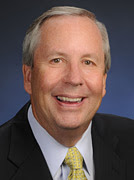There
are a lot of ways we try to get to the "ask" number. Let me outline
a few:
1.
Analyze
what the client tells us is not working during the Diagnosis
2.
Call.
Clients are quick to cancel things they don't believe in if they have
3.
A compelling idea supported by success stories. (During this step we’re also
looking at where money is being spent that IS working.)
4.
What
is the cost of doing nothing? For example, an eye doctor had just built a
$4M surgery center. Almost as soon as it opened, he learned of changes in
Medicare reimbursement for his #1 procedure, which REQUIRED his volume level to
go up. His total budget the previous year was $40K. We asked for
$125K since if he did nothing he was in big trouble.
5.
Is
there an economic equation? Alcohol rehab has 35 beds. The average
fee is $8000 for a month. Occupancy rates are 65%. 10 unsold beds
per month = $80,000 in lost revenue opportunity. They'd spend a ton to
get that.
6.
Are
they in a lot of glasses? Are we one of them? It's all working or
it’s all not working. They're not sure. We would consolidate to 2-4
glasses and see what the $$ might be.
7.
Do
they have a big dream or a big problem on the horizon? What’s it worth to
deal with that?
8.
And
then there are two biggies:
a.
Our
personal comfort zone. I'll bet you and I regularly ask for more than our
newer reps will!!
b.
Our
personal level of belief. Do we believe in the power of our product to
make a difference in their business?
Hope
this answers your question!




